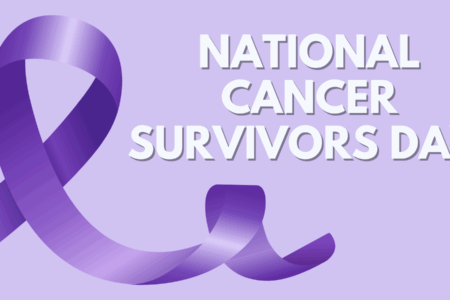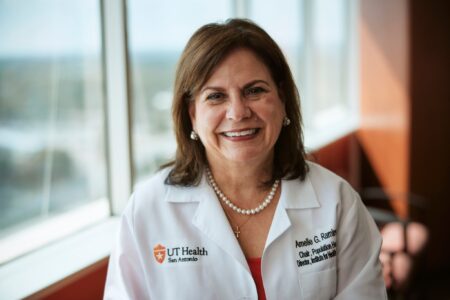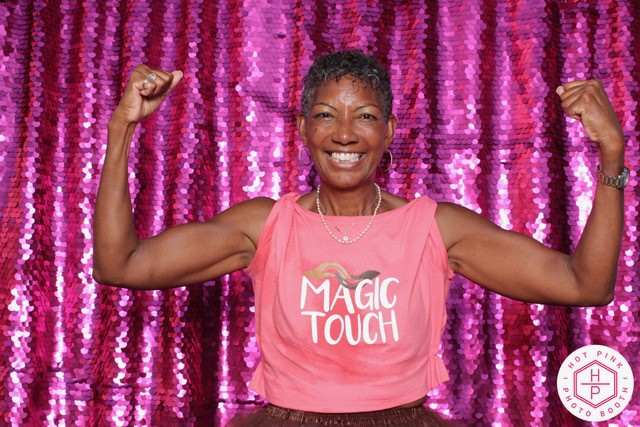
Share On Social!
When it comes to triple negative breast cancer, Ricki Fairley is a veteran on the battlefield.
“I am a 10-year survivor of triple negative breast cancer. My doctor gave me two years to live, and I’m on 10,” Fairley said.
Fairley is the CEO and co-founder of TOUCH—the Black Breast Cancer Alliance.
She is determined to diversify clinical trials, which can help find better therapies for Black, Latino, and other people of color.
“I’m really on a path, a mission to eradicate Black breast cancer and really change the game on how we talk to Black women about clinical trials. And right now, we only have 3% participation in clinical trials. So, the drugs that are currently on the market and the therapies currently on the market have never been tested on Black bodies,” Fairley said.
Passion for Advocacy to Raise Awareness of Breast Cancer among Black Women
For Fairley, being able to survive cancer and surpass the life expectancy given by her doctor is a gift.
Fairley said she feels blessed that God left her here on Earth to do this kind of work— to advocate and educate.
“[Black women] have a 42% higher mortality rate. Breast cancer survivors like me have a 71% higher risk of death. We have a 39% higher recurrence rate. And Black women under the age of 35 get breast cancer at twice the rate and die at three times the rate,” Fairley said.
Unfortunately, patients in the U.S. carry a heavy economic burden for cancer treatment— about $21.09 billion, according to a Salud America! report.
Additionally, people of color face disparities in cancer care access and outcomes due to systemic barriers like transportation, access to health care and lack of health insurance.
Black women have a different experience than white women when it comes to breast cancer.
Fairley decided to do something about it.
After her cancer diagnosis, Fairley had worked for several pharma companies, even serving on the board of the Triple Negative Breast Cancer Foundation.
That’s when it hit her. The overall mortality rates for Black women were extremely high compared to other groups.
“Nobody had sort of painted the picture of how many people are dying and the extent to which we are dying in a different way. And so, I felt like I had to start this foundation to bring this conversation to the table,” Fairley said.
Founding the TOUCH, the Black Breast Cancer Alliance
Fairley wanted to make sure that breast cancer advocacy groups worked together with patients and providers to address cancer disparities among Black women. Therefore, she helped create TOUCH, the Black Breast Cancer Alliance.
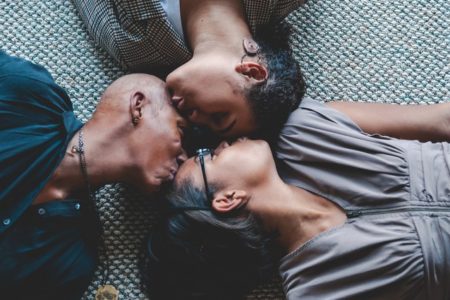 Uniting allies can speed solutions to disparities, according to Fairley.
Uniting allies can speed solutions to disparities, according to Fairley.
“That’s [why] I call [it] touching alliances…I want that camaraderie, that trust, that practice, that integration, that connection of all of these players in this in this orchestra to work together to make the music. And so that’s our purpose,” Fairley said.
According to its website, TOUCH drives “the collaborative efforts of patients, survivors, advocates, advocacy organizations, health care professionals, researchers and pharmaceutical companies to work collectively, with accountability, towards the common goal of eradicating Black Breast Cancer.”
Fairley prides herself in TOUCH working with a partner, or with a couple of partners, because it’s so important for her to create these alliances that are going to get them closer to their mutual goal.
The TOUCH community is like a family.
Fairley even uses the term “breasties” for the members because they are all friends helping each other overcome breast cancer.
Impact of Triple Negative Breast Cancer on Her Life
Fairley was your typical superhero Black woman taking care of everybody.
“I was the breadwinner for my family. I was the rainmaker for my ad agency that I work for. I had my second daughter in college that I was paying for tuition. And I think the year that I got diagnosed, I’d actually earned 100,000 miles, you know, platinum status on Delta, because I had been on so many airplanes by October 1,” Fairley said.
She was travelling, working hard, when suddenly, her world stopped.
She got diagnosed with breast cancer. Triple negative breast cancer.
“I learned pretty quickly that triple negative was pretty severe, you know. Black women get triple negative at three times the rate of white women. So, we now know that 30% of the breast cancers that black women get are triple negative, and it has the highest mortality rate, it’s the most aggressive,” Fairley said.
To make matters worse, it’s the only breast cancer subtype that doesn’t have a drug to prevent recurrence.
“When I was sick, there were no drugs. There were no targeted therapies. And I did a double mastectomy by choice. And then I did six rounds of the standard of care: chemotherapy, six weeks of radiation, and then a year to the day of my diagnosis. They found five spots on my chest wall. My doctor said, ‘Okay, you’re now metastatic, you’re gonna die.’ You have two years, work it out,” Fairley said.
Until about three months ago, targeted therapy treatments for triple negative did not exist.
“In the last year, we now have two drugs available: Trodelvy by Gilead, and Keytruda made by Merck, that are targeted for triple negative, and only Keytruda is really available for early-stage triple negative,” Fairley said.
After searching for doctors specialized in triple negative breast cancer, she stumbled across a specialist in Atlanta, who ended up saving her life.
 “I’m still here. I know I’m a blessing. I’m a walking miracle,” Fairley said.
“I’m still here. I know I’m a blessing. I’m a walking miracle,” Fairley said.
After all the turmoil, Fairley decided to quit her old life and started a new one.
“I had to learn that my peace is non-negotiable,” Fairley said.
As a two-time cancer survivor, she realized the importance of living every day to your fullest.
“I moved to the beach to a little one-bedroom condo, and I go paddle boarding as much as I can,” Fairley said.
She has been trying to minimize the stress in her life, because she knew that stress had played a big role in her breast cancer.
How COVID-19 Affected TOUCH and Access to Resources
COVID-19, a pandemic of sickness and stress in itself, is what marked TOUCH’s debut.
At the beginning stages of TOUCH, the organization started a web series called “The Doctor Is In.”
“We air it on the blackdoctor.org Facebook page. We’re on every Wednesday night at six o’clock Eastern time, and it’s an hour-long show. My co-host is Dr. Monique Garry and we talked about anything breast cancer [related],” Fairley said.
When the web series just started, there were huge audiences since everybody was on Zoom due to the pandemic.
This year, the series was able to reach about 3 million people, according to Fairley, with a normal episode usually having between 5,000 to 15,000 viewers a week.
“I don’t think that would have happened without COVID. We would have had events that maybe 100 people came, but we’re able to reach 3 million people because of the virtual platform,” Fairley said.
Fairley expressed how pleased she was with the outcome of the web series because it proved to be effective and confirmed that fact that there is an audience for this conversation.
A Major TOUCH-Point: Diversifying Breast Cancer Clinical Trials
Fairley has been on a mission to help Black women have a better understanding of what clinical trials are all about, so that more are willing to engage.
“Right now, there’s a lot of fear about clinical trials from, you know, the earned mistrust by the medical community from Henrietta Lacks, and syphilis and all those bad history that we know about. But we really must understand and educate our community that that stuff can’t happen anymore, and there are laws in place to prevent it,” Fairley said.
To get the drugs that will work for people of color, Fairley urged the importance of research and getting more Black patients to participate.
“We’re going to keep dying until we get better drugs, because the drugs don’t work on our bodies. Their standard care didn’t work on me. When you have a 42%, higher mortality rate, a 71%, higher risk of death, a 39%, higher recurrence rate, something’s wrong,” Fairley said.
Fairley has spent the last decade talking to the media and helping convince people to change their attitudes toward clinical trials.
She continues to debunk myths about clinical trials and “sugar pills” or placebo pills.
“Well, guess what? In cancer research, there is no sugar pill. You’re either getting a new drug that’s not available on the market, yet it’s being tested, or you get what’s called standard of care, which means that it’s a drug that early exists, it’s working for some people— it could be the chemo that you’re on,” Fairley said.
Misinformation or a lack of information are huge factors that contribute to a lack of racial/ethnic diversity in clinical trials.
“When we start to open up the conversation, and really explain things to people in a very understandable way, they get it. We can convince them to do a trial,” Fairley said.
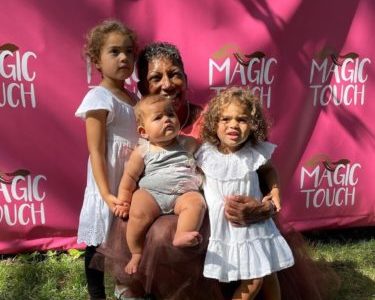 She shared her most compelling argument for enrolling in a clinical trial: Do it for your daughter, your granddaughter, or somebody you love so that you can be there for them.
She shared her most compelling argument for enrolling in a clinical trial: Do it for your daughter, your granddaughter, or somebody you love so that you can be there for them.
On Jan. 11, 2022, TOUCH will launch a new movement, “When We Trial,” to help the Black community understand that clinical trials are an option for them.
“We’re going out to other Black community organizations, to the churches, to really where black people live, work, play and pray. And one of my mantras [comes] from Coke, when I used to work [there]: Coke wants to be within arm’s reach of the consumer. So, think about it. Wherever you are, you can find a Coke. Whether it’s in your house, in the refrigerator, at a convenience store, at the grocery store, at the gas station, they’re everywhere. I want everywhere with this message, because frankly, you need to know about clinical trials before you need one,” Fairley said.
How Can We Support Black Women with Breast Cancer?
To support TOUCH, you can donate to their organization.
“[You can] go to our website, touchbbca.org, and on all of our social media: @touchbbca,” Fairley said.
TOUCH also has a Historically Black Colleges and Universities (HBCU) internship program for students interested in working on their administrative activities and help spread their messages.
“If you know a sick ‘breastie’ that needs help, please call us we’ll talk to them. You know, a lot of our work is just talking on the phone and talking to people, people through this experience. It’s not fun…but once you’re in it, it’s kind of unconditional love and support and we love on each other,” Fairley said.
Breast cancer is the top cause of death of Black women and Latina women.
Fairley encourages all women, even young women, to check their breasts frequently and know what normal feels like.
“Be your own advocate, stand up for yourself by, and know that your peace is non-negotiable because you deserve peace in everything you do,” Fairley said.
By The Numbers
142
Percent
Expected rise in Latino cancer cases in coming years
This success story was produced by Salud America! with support from the Robert Wood Johnson Foundation.
The stories are intended for educational and informative purposes. References to specific policymakers, individuals, schools, policies, or companies have been included solely to advance these purposes and do not constitute an endorsement, sponsorship, or recommendation. Stories are based on and told by real community members and are the opinions and views of the individuals whose stories are told. Organization and activities described were not supported by Salud America! or the Robert Wood Johnson Foundation and do not necessarily represent the views of Salud America! or the Robert Wood Johnson Foundation.


